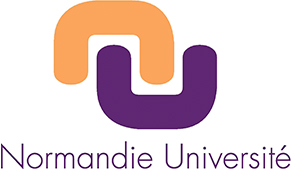Fondée en 2004, l’Équipe de Recherche Interdisciplinaire sur les Aires Culturelles (ERIAC UR 4705) est une unité de recherche de l’université de Rouen Normandie.
Intégrée à l’UFR Lettres et Sciences Humaines, elle réunit des linguistes, des spécialistes de philosophie, de langues et littératures anciennes, de géographie culturelle, d’études allemandes, anglaises, italiennes, lusophones et hispaniques.
















